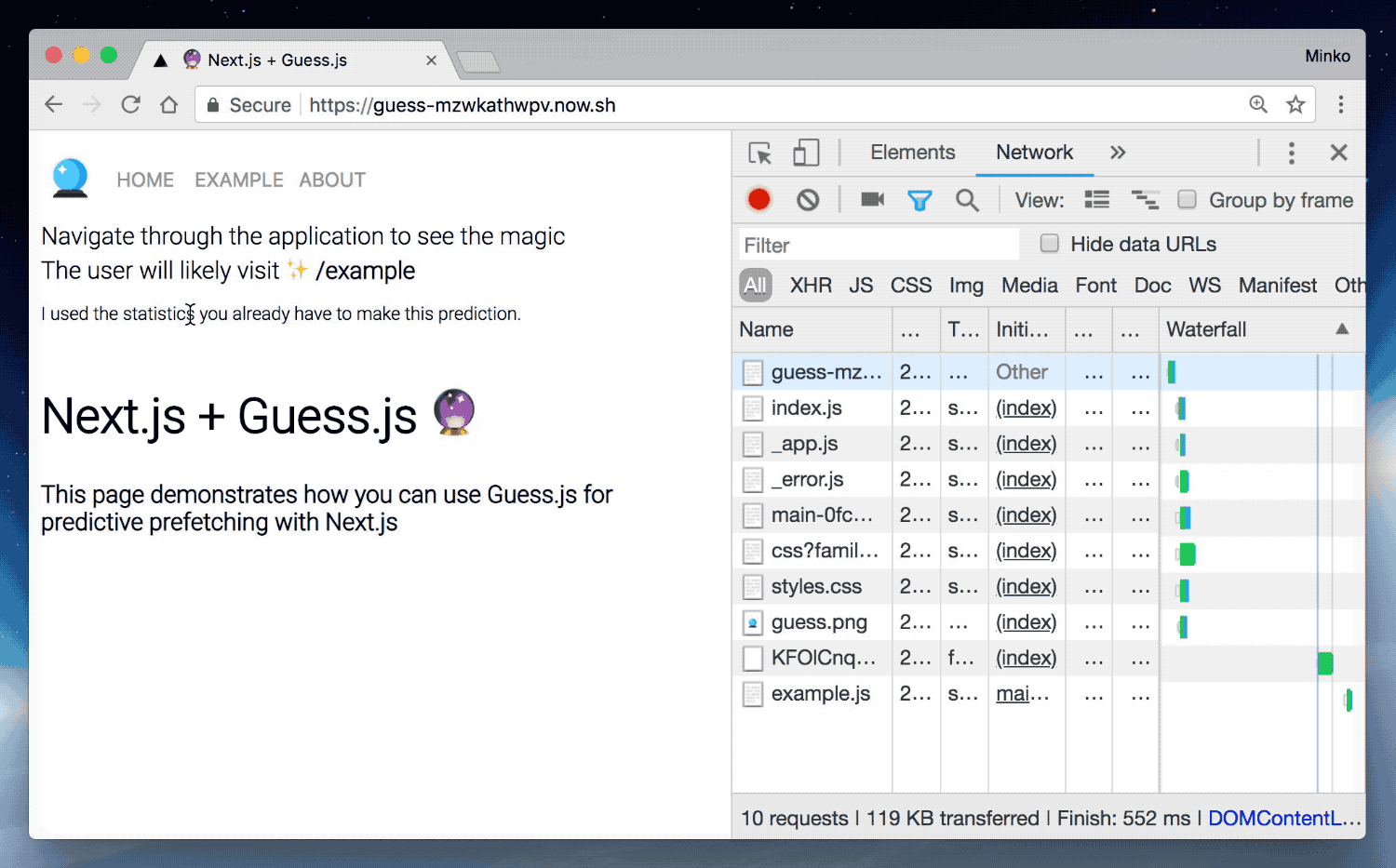mgechev / Guess Next
Programming Languages
Labels
Projects that are alternatives of or similar to Guess Next
🔮 Guess.js + Next.js
Guess.js is a collection of libraries & tools for enabling data-driven user-experience on the web.
In this particular example, we combine Guess.js with Next.js to introduce predictive prefetching of JavaScript bundles. Based on user navigation patterns collected from Google Analytics or other source, Guess.js builds a machine-learning model to predict and prefetch JavaScript that will be required in each subsequent page.
Based on early benchmarks, this can improve the perceived page load performance with 20%.
For more information on Guess.js, take a look at the following links:
- Google I/O announcement by Addy Osmani
- Introducing Guess.js - a toolkit for enabling data-driven user-experiences on the Web
- Using Guess.js with static sites
- Using Guess.js with Angular, React, and Gatsby
Usage
Here's how you can try the demo:
git clone [email protected]:mgechev/guess-next
cd guess-next && npm i
npm run build && npm start
Integration
Guess.js (0.1.5 and above) works with Next.js with only two points of integration. All you need to do is add the GuessPlugin to next.config.js and introduce a snippet for prefetching the pages which are likely to be visited next.
The following sections describe both points in details.
Webpack Config
All you need is to extend the webpack config of your Next.js application is to add the GuessPlugin to next.config.js file, located in the root of your project. If the file does not exist, create it and add the following content:
const { GuessPlugin } = require('guess-webpack');
module.exports = {
webpack: function(config, { isServer }) {
if (isServer) return config;
config.plugins.push(
new GuessPlugin({
GA: 'XXXXXX'
})
);
return config;
}
};
We set the value of the webpack property of the object literal we set as value to module.exports. We set it to a function which alters the GuessPlugin to the config.plugins array. Notice that we check if Next.js has invoked webpack on the server and we return.
As a value of the GA property, we set a Google Analytics View ID. At build time, Guess.js will open a browser and try to get read-only access to extract a report and use it for the predictive analytics.
Note that Google Analytics is not the only provider you can use to provide the user navigation report that Guess.js uses. In this example application we provide the report from a JSON file.
Prefetch Pages
The final piece of the integration is performing the actual prefetching. In your layout component (see components/layout.js) add:
import { guess } from 'guess-webpack/api';
// ...
if (typeof window !== 'undefined') {
Object.keys(guess()).forEach(p => router.prefetch(p));
}
// ...
Keep in mind that we check if window is "undefined". This is required because we don't want to run Guess.js on the server. When we invoke guess(), we'll return a set of routes where each route will have an associated probability for the user to visit it.
The routes that guess() returns depend on the Google Analytics report that it has extracted, together with the user's effective connection type.
License
MIT

